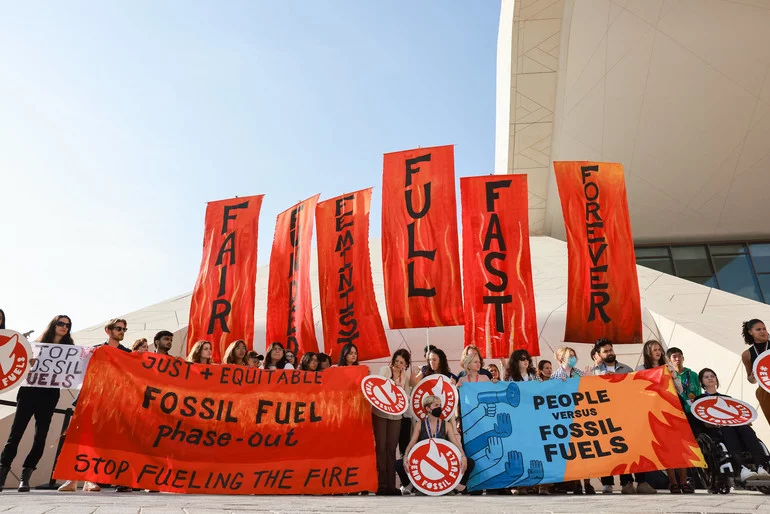The Conference of Parties (COP) is synonymous with the United Nations Climate Change Conference. Convened annually since 1995, the COP summits serve as a platform for signatories to the United Nations Framework Convention on Climate Change (UNFCCC) to collaboratively address the root causes, impacts, and prospective solutions related to the warming Earth.
COP 28 (2023) saw close to 100,000 attendees (in the capacity of politicians, diplomats, lobbyists, policymakers, investors, activists, climate scientists and journalists) from 200 nations fly across the globe-destination: Dubai (United Arab Emirates).
The authoritarian oil state, known for extravagance, arid conditions and juxtaposed picture-perfect golf courses, hosted the COP 28 summit, employing Sultan Ahmed al-Jaber, the CEO of the state-owned Abu Dhabi National Oil Company (ADNOC), for its presidency. Seemingly, he found a window of available time amidst ADNOC’s $150 billion (US) oil and gas expansion.
It would be unethical not to highlight and recognise the positive outcomes of the 2023 summit, such as conservationists celebrating the new goal of zero global deforestation by 2030. However, the actions, or lack thereof, by COP 28 outweigh potential triumphs and have resulted in a myriad of criticisms.

COP 28 finally heard political powers naming fossil fuels as a climatic concern- yet policies regarding moving into cleaner, more ecologically minded means of energy generation are subject to issues with interpretation, having adopted weak language and added ‘wriggle room’ for when political ‘pushes come to shove’. The official documentation calls for the transition from coal, oil, and gas “in a just, orderly and equitable manner”, with little mention of a specified timescale or emphasis on urgency.
2023 witnessed the hottest summer recorded in over 120,000 years- leaving the Paris Agreement’s most ambitious goal (agreed upon by 200 countries in 2015), limiting global heating to 1.5°C, effectively frazzled due to the lack of urgency and specifics within the agreement. The expansion of the oil, gas, coal and agricultural industries runs parallel with the warming of the Earth. Still, conversely, Sultan Ahmed al-Jaber claims there is “no science [supporting]” correlations between the two.
Notably, those most affected by the inefficiencies of COP 28 are not found within the air -conditioned and fully catered UN or COP conference rooms. The biggest victims of climate change, and thus the shortfalls of the COP summits, can be found in developing countries. Those with better financial stability and industrialisation are not adequately supporting the adaptation and ‘transition’ away from fossil fuels (such as coal) and, in turn, play a role in suppressing developing countries’ representation in decision-making processes.
Whilst it may be easy to criticise COP 28 from behind a keyboard, over 4,400 miles away from the conference, environmental campaigners attending the summit (encompassing voices advocating for indigenous representation, the defence of human rights, and those engaging in climate activism) were faced with threats and harassment- themselves becoming victims of COP 28 through indirect silencing by the fear of repercussions. The treatment of those opposing current environmental policy is not unique to the COP 28 summit- the cascading consequences of campaigns and demonstrations have been witnessed at numerous UN events.
The effect of our warming Earth transcends through every biome, somewhat contrasting the lukewarm agreements put in place to protect them. With policies littered with loopholes and “climate deniers” taking centre stage, 2023 is set to be one of the coolest years in the lives of many children and young people despite the record-breaking heat of the summer. Between “greenwashing” accusations, vague words and empty promises- can we trust those in power to protect our planet?
